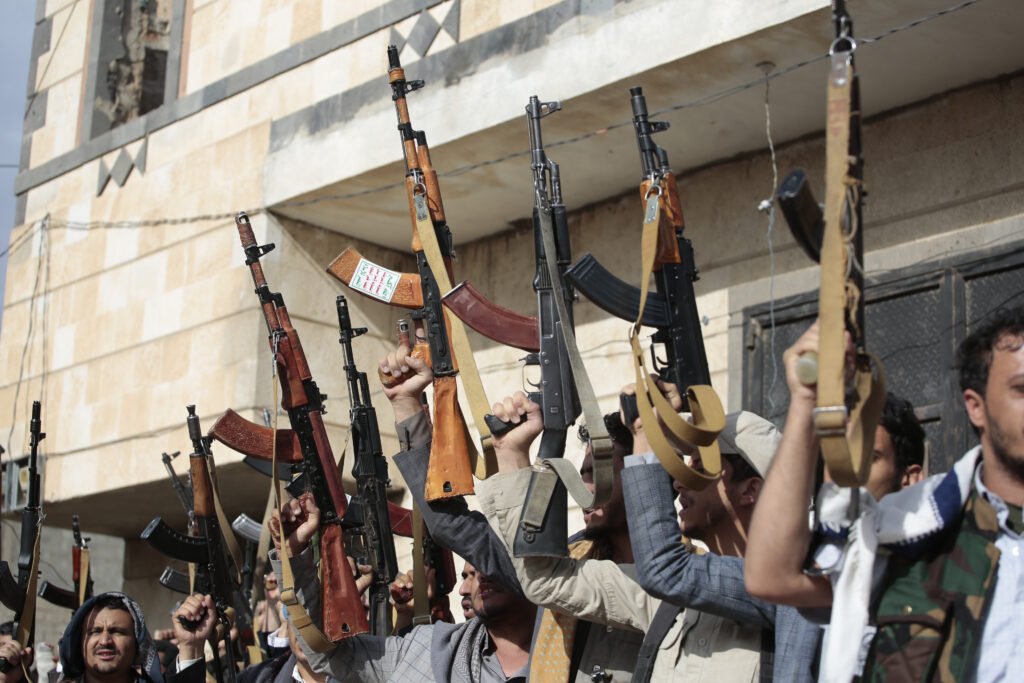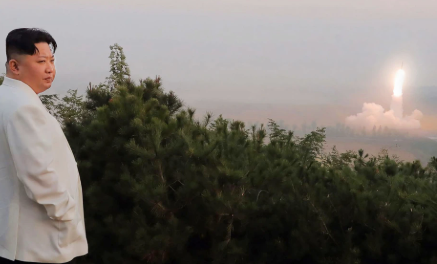
Washington/Sanaa, March 17 – The United States launched a major military offensive against Yemen’s Iran-backed Houthi forces on Saturday in response to ongoing attacks on Red Sea shipping. The strikes, authorized by President Donald Trump, have killed at least 31 people, including women and children, according to Yemeni health officials.
The campaign, expected to continue for several days or weeks, marks the largest U.S. military operation in the Middle East since Trump took office. The president issued a stern warning to Iran, the Houthis’ primary ally, stating that the U.S. would hold Tehran fully accountable if it continued its support for the group.
“To all Houthi terrorists, YOUR TIME IS UP, AND YOUR ATTACKS MUST STOP, STARTING TODAY. IF THEY DON’T, HELL WILL RAIN DOWN UPON YOU LIKE NOTHING YOU HAVE EVER SEEN BEFORE!” Trump declared on Truth Social.
In response, Iran’s Revolutionary Guards commander, Hossein Salami, denied Iran’s direct control over the Houthis but warned of a decisive retaliation if the U.S. escalated its threats. Meanwhile, Iran’s Foreign Minister Abbas Araqchi condemned the strikes as a violation of international law, calling on Washington to “end support for Israeli genocide and terrorism.”
Escalation Across Yemen
The U.S. airstrikes targeted key Houthi military installations in Sanaa, Taiz, and Saada. Reports indicate that a power station in Dahyan was hit, causing widespread outages. Witnesses described the explosions as “violent,” with neighborhoods shaking as if struck by an earthquake.
The Houthis, who have controlled much of Yemen for nearly a decade, have vowed to retaliate. “Our Yemeni armed forces are fully prepared to respond to escalation with escalation,” the group’s political bureau said in a statement.
Red Sea Attacks and U.S. Response
Since November 2023, the Houthis have launched multiple attacks on commercial and military vessels in the Red Sea, disrupting global trade. U.S. officials report 174 attacks on U.S. warships and 145 on commercial vessels. The Houthis claim their actions support Palestinians amid Israel’s war in Gaza.
Despite previous limited U.S. responses under President Joe Biden, Trump has authorized a more aggressive military approach. Fighter aircraft from the USS Harry S. Truman played a key role in Saturday’s strikes.
As tensions rise, diplomatic efforts remain uncertain. Trump recently sent a letter to Iran’s Supreme Leader Ayatollah Ali Khamenei seeking nuclear negotiations, but Tehran has rejected talks.
Keep Reading Questiqa.com
Get more News Headlines On Our Social Platforms And Do Follow.




